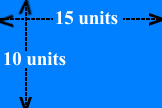![[Dharma Chakra]](../images/v/vx-th^acic1.gif)
Commander in Chief of the Army (1938),
Thailand
![[Hindu dhvaja]](../images/v/vxt-d3530.gif)
![[Hindu dhvaja]](../images/v/vxt-d113a.gif)
![[Hindu dhvaja]](../images/v/vxt-d113b.gif)
Dhvajas of the Hindus (Zeljko Heimer & CS)
Notes
a) "Dhvaja" is the Sanskrit word for “flag” and the
examples shown above are flown on festivals and other special occasions to mark the victory of Sanatana
Dharma, however, pennants dedicated to individual gods within the Hindu pantheon are also sometimes seen.
b) The word is sometimes pronounced as d’vahjah, but other pronunciations exist.
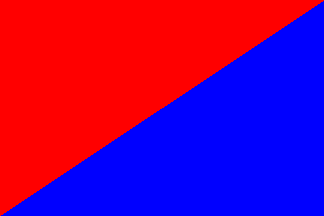
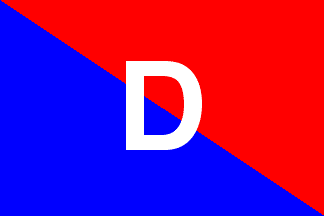
Flag of Lanzarote, Spain;
A House Flag of Dalen & Fraternitas, Sweden
![[Pont-à-Celles]](../images/v/vx-be-whtpc.gif)
Flag of Pont-à-Celles, Belgium
![[diagaonally disposed charge]](../images/v/vx-ch-gl021.gif)
![[diagaonally disposed charge]](../images/v/vx-ch-be377.gif)
![[diagaonally disposed charge]](../images/v/vx-ch-gr159.gif)
Flag of Nidfurn, Switzerland;
Flag of Bettenhausen, Switzerland;
Flag of Luzein, Switzerland
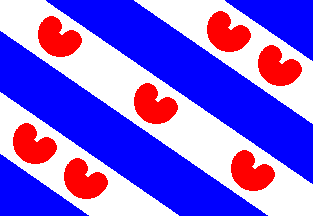
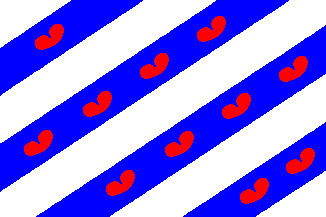
Flag of Friesland, Netherlands;
Flag of Ommelanden, The Netherlands
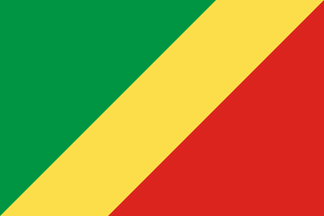
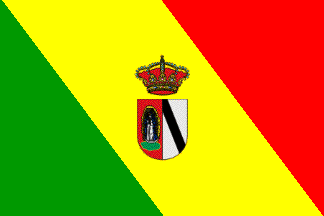
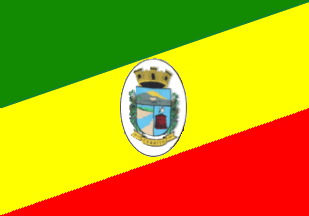
National Flag, The Congo;
Flag of Algar, Spain;
Flag of Cerrito, Brazil
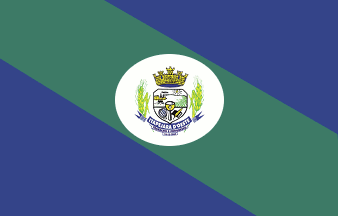
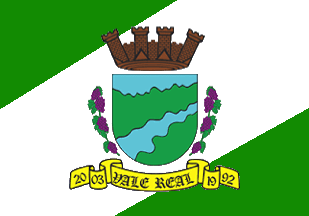
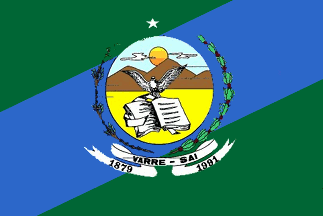
Flag of Itapejara d'Oeste, Brazil;
Flag of Vale Real, Brazil;
Flag of Varre-Sai, Brazil
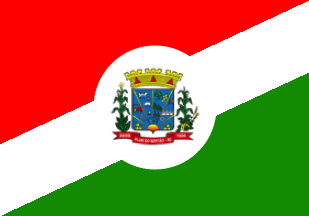


Flag of Flor do Sertão, Brazil;
Flag of Porto de Moz, Brazil;
Flag of Lagoinha, Brazil
![[diamond example]](../images/v/vx-br-mt.gif)
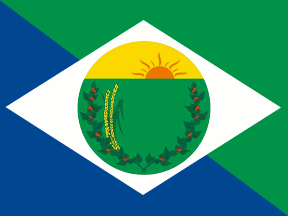
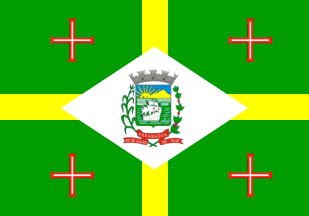
Flag of Mato Grosso, Brazil;
Flag of Colniza, Brazil;
Flag of Paranaguá, Brazil
![[diamond example]](../images/v/vx-de~jebs2.gif)
![[diamond example]](../images/v/vx-nl-dr_hv.gif)
![[diamond example]](../images/v/vx-pt~hfjha.gif)
House Flags of Michael Jebsen & Co., Germany;
Hollandscheveld, The Netherlands;
Andresen Shipping Company, Portugal
2) In heraldry, see cadency, mark of and note c) below.
3) See marks of difference 1)
![[Russia]](../images/v/vx-ru.gif)
![[Serbia]](../images/v/vx-rs_civ.gif)
![[Slovakia]](../images/v/vx-sk.gif)
National flag of Russia;
National Flag of Serbia 2004–2011;
National Flag of Slovakia
Notes
a) As examples and with regard to 1), the flags of Italy and Bulgaria were
differenced from those of France and of Russia by changing the blue stripes to green, whilst
as further examples:
b) The flag of Slovakia was differenced from the Russian
tricolour by the addition of a charge, and that of Serbia by the reversal of its colour sequence
– see pan-Slavic colours.
c) Regarding 2), in heraldry the terms difference and differencing may not have exactly the same meaning, that these terms do not necessarily equate directly with cadency as shown above and that we therefore suggest a dictionary or glossary on heraldry should be consulted for further details.
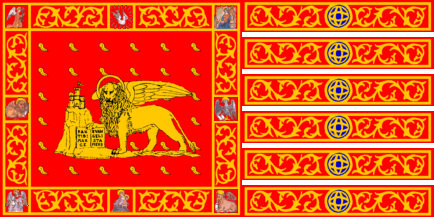
Flag of Venice, Italy
![[dimidiated flags]](../images/v/vx-pl-op_ny.gif)
![[dimidiated flags]](../images/v/vx-ch-ge.gif)
![[dimidated flags]](../images/v/vx-gb~cp.gif)
Flag of Nysa, Poland;
Flag of Geneva, Switzerland;
Flag of the Cinque Ports, UK
Notes
a) Where two sets of dimidiated arms or any
elements thereof are set side by side in heraldic terms they are said to be
‘impaled by dimidiation’, and:
b) whilst this is often the case, one dimidiated charge, or set of
dimidiated arms, need not necessarily be set beside another so
halved (as per the example shown above) – see entire 1)
(also conjoined).
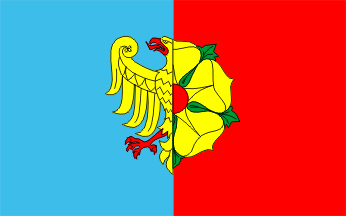
Flag of Wodzisław Śląski, Poland
Please note that the usual protocol with regard to flying a flag in the half-mast position on land is not followed at sea.
![[diplomatic flags]](../images/v/vx-gb-diplo.gif)
![[diplomatic flags]](../images/v/vx-th_amb.gif)
![[diplomatic flags]](../images/v/vx-gm_amb.gif)
Ambassadors’ Flags – UK,
Thailand and Gambia
Please note that these flags are not generally flown outside embassies or consulates (although they may be), but are more usually seen ashore as car flags, within diplomatic premises and/or outside the residences of ambassadors or consuls, or they may be flown from the main masthead or a jack staff of a vessel carrying a diplomatic or consular officer when afloat (see also car flag, jack staff, main and masthead).
2) (v) At sea, a method of saluting with a flag whereby the ensign is lowered about one width from the truck of the ensign staff (or one-third the length of the halyard if flying at the gaff or yardarm) and then re-hoisted to its original position (see also ensign, ensign staff, gaff, halyard and yardarm).
3) See trailing.
Notes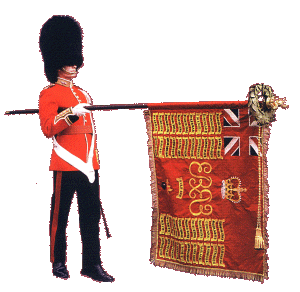
(trooping-the-colour.co.uk: 2008,
2024)
a) A warship will never dip its ensign
to another vessel (whether warship or merchantman) but will invariably return
the salute when offered by a merchant vessel – a courtesy that (whilst formerly
given as a matter of course) is rarely seen today – and that that warships only
return salutes from the ships of countries recognized by their own government.
Saluting between warships not wearing the flag of a flag officer or a broad pennant
is carried out by bosun's call or bugle, and when flag officers meet at sea they
salute each other with the appropriate number of guns, although usually only by
prior arrangement (see also
flag of command,
flag officer,
gun salute and
private ship).
b) At sea a manoeuvring signal
will be dipped by the flagship when it has been acknowledged, and signifies that
the signal is to be executed, however, an answering or code pennant flown at the dip in
response to a hoist from the flagship, indicates that the signal is not understood
– an answering pennant flown close-up confirms that the signal has been received
and understood (see also code pennant,
close-up,
dip, at the, hoist 2) and
signal flag).

![[Pont-à-Celles]](../images/v/vxt-d1307.gif)
